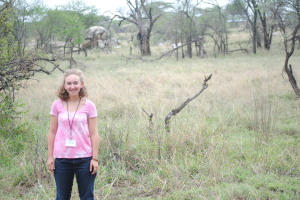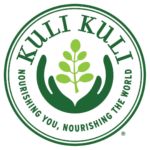
National parks worldwide have often been created with the vision of an “untamed wilderness” devoid of people, and for a long time I believed that the best way to conserve nature was to take people out of it. But my trip to Tanzania this summer made me think otherwise. The trip was a course through Stanford, where I go to school. We went on safari, visited two local villages, and learned about the relationship between the national parks and the local people there.
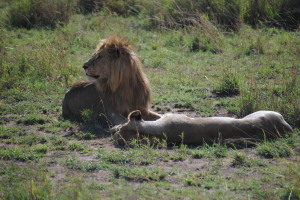
Many of the national parks in Tanzania were established by or at least with the funding of international organizations, many in the imperialist era. As a result, when a national park was established, the local people were kicked off the land that they had lived on for generations. A group that is especially affected is the Maasai. These people are semi-nomadic pastoralists who herd cattle to earn a living, and who rely on and respect the land. Today, many Maasai communities live on the edges of a national park, rely partially on agriculture, are among the most impoverished in the nation, and are largely ignored by the government.
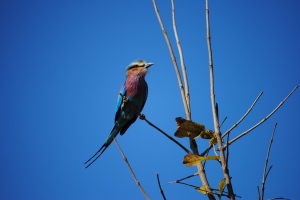
Learning about these huge issues while actually experiencing the incredible scenery and majestic animals of Tanzania definitely provided for a unique experience for me. I have always loved traveling and felt so grateful for the opportunity to visit one of the most beautiful and ecologically rich regions of the world, but it also shed new light on an issue that is repeated again and again all over the world. Why was I, as a foreigner, allowed to visit and stay on these lands, while the native inhabitants, who had been living off the land and cooperating peacefully with the wildlife for hundreds of years, were forcibly exiled from them? Why has this been the case for almost a century, in many areas since sport hunting was allowed in the parks in the early 1900s, without much change?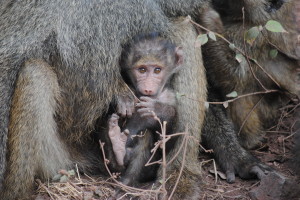
It is hard to know what the solution is to this major problem. Do we allow people back into national parks, with the risk of modernization, development, and population growth impacting the environment and the wildlife in a negative way? Poaching as well as plumbing impact wildlife that require large ranges and many resources to survive. Do we increase the number of NGOs investing in communities in Tanzania, while running the risk of imposing Western ideals on local people and not actually helping them improve their livelihoods? Time and time again we have seen examples of outside organizations that have tried to help local communities but have just hurt them because of a lack of cultural awareness or true community empowerment. These questions were the main focus of our class, and exploring them in such a unique way gave me new insight on cultural interaction, environmental issues, and the role they play in my life.
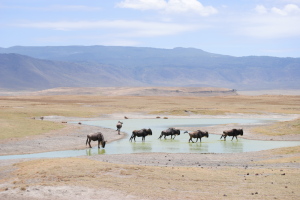
In particular, I discovered my passion for ecotourism on this trip. Although the term is very overused, this concept definitely has the potential to be a healthy and positive link between Western culture and local Tanzanian communities, while benefitting both. Ecotourism has the potential to allow travelers to have an informative and eye-opening experience in a foreign country in low-impact way in terms of the environment and the local culture. Ecotourism companies have an opportunity to provide direct benefits to local communities by supporting the development of infrastructure, education, and better agricultural practices. This is where moringa comes in – although moringa grows extremely well in this environment, I did not encounter any moringa trees on my trip, and the introduction of moringa through ecotourism or other avenues as a way to support local communities in sanitation, nutrition, and economy could really change the livelihoods of many Tanzanians. My trip to Tanzania really impacted my perspective on conservation and community development while letting me experience firsthand a region of the world that can really benefit from more widespread use of moringa.

